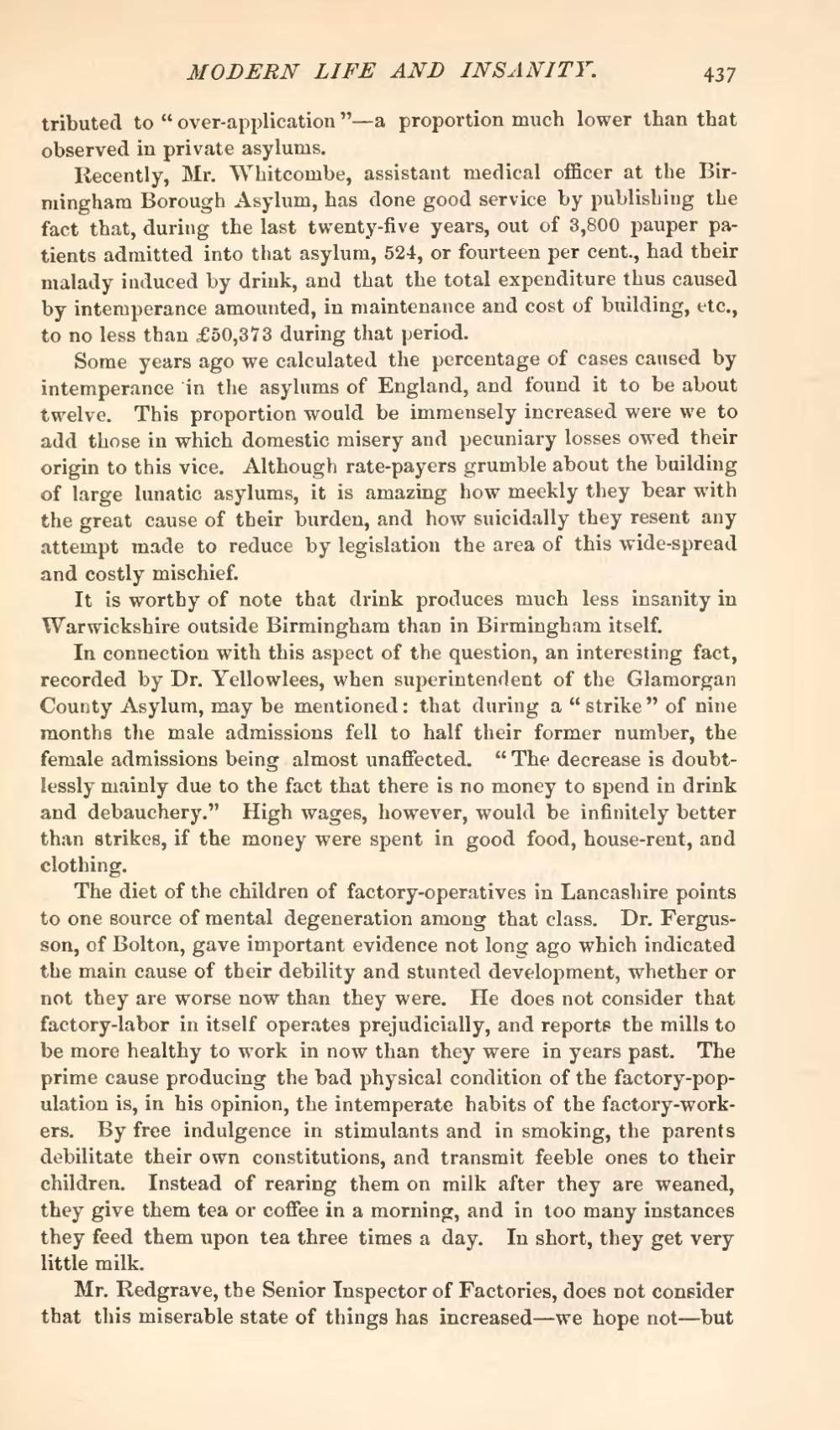tributed to "over-application"—a proportion much lower than that observed in private asylums.
Recently, Mr. Whitcombe, assistant medical officer at the Birmingham Borough Asylum, has done good service by publishing the fact that, during the last twenty-five years, out of 3,800 pauper patients admitted into that asylum, 524, or fourteen per cent., had their malady induced by drink, and that the total expenditure thus caused by intemperance amounted, in maintenance and cost of building, etc., to no less than £50,373 during that period.
Some years ago we calculated the percentage of cases caused by intemperance in the asylums of England, and found it to be about twelve. This proportion would be immensely increased were we to add those in which domestic misery and pecuniary losses owed their origin to this vice. Although rate-payers grumble about the building of large lunatic asylums, it is amazing how meekly they bear with the great cause of their burden, and how suicidally they resent any attempt made to reduce by legislation the area of this wide-spread and costly mischief.
It is worthy of note that drink produces much less insanity in Warwickshire outside Birmingham than in Birmingham itself.
In connection with this aspect of the question, an interesting fact, recorded by Dr. Yellowlees, when superintendent of the Glamorgan County Asylum, may be mentioned: that during a "strike" of nine months the male admissions fell to half their former number, the female admissions being almost unaffected. "The decrease is doubtlessly mainly due to the fact that there is no money to spend in drink and debauchery." High wages, however, would be infinitely better than strikes, if the money were spent in good food, house-rent, and clothing.
The diet of the children of factory-operatives in Lancashire points to one source of mental degeneration among that class. Dr. Fergusson, of Bolton, gave important evidence not long ago which indicated the main cause of their debility and stunted development, whether or not they are worse now than they were. He does not consider that factory-labor in itself operates prejudicially, and reports the mills to be more healthy to work in now than they were in years past. The prime cause producing the bad physical condition of the factory-population is, in his opinion, the intemperate habits of the factory-workers. By free indulgence in stimulants and in smoking, the parents debilitate their own constitutions, and transmit feeble ones to their children. Instead of rearing them on milk after they are weaned, they give them tea or coffee in a morning, and in too many instances they feed them upon tea three times a day. In short, they get very little milk.
Mr. Redgrave, the Senior Inspector of Factories, does not consider that this miserable state of things has increased—we hope not—but
